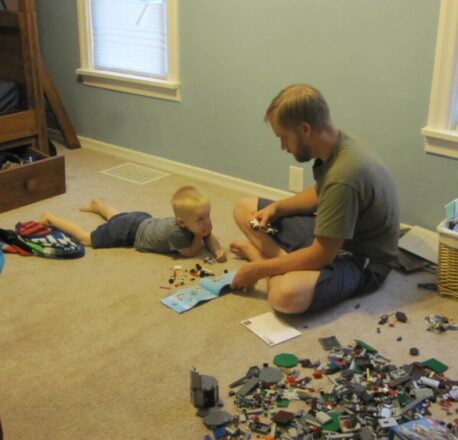His Promises
Resting in God’s Will
Peace comes when we rest in God’s will. That’s not a trite, coffee-mug slogan about everything working out for our comfort. True rest doesn’t come from assuming that things will go the way we want—but from knowing that even when they don’t, God is still in control.
God is sovereign. At the same time, we are responsible for our actions. We should work hard, make wise decisions, pursue good goals. But when our efforts fall short or our plans unravel, we can rest—not in our ability, but in His will. We trust that He is weaving something wiser and better than we could ever design. As He says in Isaiah 55:8-9:
“For My thoughts are not your thoughts,
Nor are your ways My ways,” says the Lord.
“For as the heavens are higher than the earth,
So are My ways higher than your ways,
And My thoughts than your thoughts.”
That’s a humbling reality. And it’s the opposite of a prosperity gospel. God’s will is not always easier—but it is always better. It may not match our desires or timelines, and it may come through seasons of suffering. But peace doesn’t come from getting our way—it comes from surrendering to His way.
Psalm 127 captures this perfectly:
“Unless the Lord builds the house,
They labor in vain who build it;
Unless the Lord guards the city,
The watchman stays awake in vain.
It is vain for you to rise up early,
To sit up late,
To eat the bread of sorrows;
For so He gives His beloved sleep.”
We can wear ourselves out, chasing outcomes, worrying over results. But success isn’t produced by effort alone. It’s given by God. He may use our diligence, but He does not depend on it. When we labor within His will, He gives us rest. When we trust His timing, He gives us peace.
Of course, this doesn’t mean we stop working. It’s not laziness—it’s alignment. It’s living diligently inside the boundaries He’s provided. Sometimes, those boundaries become guardrails for discernment.
My family has experienced this firsthand. There were several seasons when we were searching for a new home—one that would serve our needs better. We had a budget rooted in God’s provision, and that budget helped protect us from foolish decisions. There were times when things didn’t make sense: we had an offer rejected, only to watch the same home sell for less than our offer. Or we’d find a promising house, but couldn’t sell our old one. It was frustrating in the moment—but we believed that if the timing wasn’t lining up, it was because God was guiding things behind the scenes.
Years later, we see it more clearly. We see His hand in getting us to where we are—not through our own strategy or success, but through rest. We didn’t force it. We trusted Him to work in the areas we couldn’t control.


Resting in God’s Promises
Still, this truth has to go deeper. A theology that only works in America isn’t worth much. God’s promises have to be just as true for a wealthy American family as they are for a struggling believer in North Korea or a persecuted church in the Middle East.
I’ve walked through heartache that didn’t match the shiny American gospel. I’ve faced moments when I had to ask, “Do I actually believe God, or just believe in a comfortable version of Him?” That kind of questioning forces you to look at what you’re hoping in—and whether God ever actually promised it.
I came to a hard but freeing conclusion: I cannot “believe” for things that God has not promised. That’s not faith—that’s presumption. Saying “I believe God will give me a million dollars today” doesn’t obligate God to act. If He doesn’t do it, that’s not a failure on His part. It’s a misunderstanding on mine. I’ve pinned my hope on something He never said.
And yet—this is what makes His real promises so precious. They’re not based on our wish lists. They’re rooted in His eternal character. Because we can’t cling to everything, we learn to cling tightly to what He has truly said.
No, He hasn’t promised ease. But He has promised His presence.
He hasn’t promised riches. But He has promised to supply all our needs.
He hasn’t promised that we won’t be burdened. But He has promised never to leave us or forsake us, and that His burden is light.
And that’s the whole message of this book: God’s promises are enough. Everything beyond them is grace. The rest is gravy.